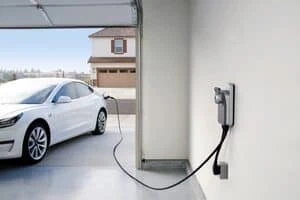If you\'re considering the installation of a level 2 charger, you may be wondering why it costs more than a regular level 1 charger. The answer lies in the differences between the two types of chargers and the additional costs associated with level 2 charger installation. In this blog post, we\'ll explore why level 2 charger installation cost more and what you can do to help keep the costs down.
The Basics: What Is a Level 2 Charging Station?
When it comes to electric vehicle (EV) charging, level 2 charging stations are often the go-to option for drivers. Level 2 charging stations offer a faster charge rate than standard, Level 1 charging. As such, they can significantly reduce the amount of time it takes to charge an EV, making them a great option for those who need to get back on the road quickly.
However, what many don’t realize is that level 2 charging stations come with a higher installation cost than Level 1 chargers. In this article, we’ll explore why level 2 chargers cost more to install and why they’re worth the extra money.
First and foremost, level 2 chargers require more electrical infrastructure than their Level 1 counterparts. This is because level 2 charging requires significantly higher amperage than Level 1 in order to reduce charging times. This means that a larger circuit breaker and wiring will be needed in order to safely provide the power necessary for charging. This additional infrastructure can significantly increase the cost of installation.
In addition, many municipalities require certain permits and inspections in order to ensure that all EV charging stations are properly installed and safe for use. For example, an electrician may need to be hired to do an inspection before the charger can be used. This adds an extra layer of cost that needs to be factored into the overall cost of installation.
The Different Types of Level 2 Chargers
Level 2 charging stations are a great way to make sure your electric vehicle is always ready for the road. But installing one can come with a higher price tag than other types of chargers. So what makes them more expensive?
To understand why level 2 chargers cost more, it’s important to understand the different types of level 2 chargers. The most common type of level 2 charger is an AC Level 2 charger. These use alternating current (AC) to charge your vehicle at a rate of up to 25 miles per hour. AC Level 2 chargers are usually installed in your home or workplace and cost anywhere from $400 to $1,200.
The second type of level 2 charger is a DC Level 2 charger, also known as a fast charger. This type of charger uses direct current (DC) to charge your vehicle at a rate of up to 50 miles per hour. DC Level 2 chargers are typically found at public charging stations, such as those found in parking garages or shopping malls, and cost up to $2,500 or more to install.
The Pros and Cons of Level 2 Chargers
Level 2 charging stations are an important part of the electric vehicle charging network. These high-powered chargers provide drivers with a much faster charging experience compared to their Level 1 counterparts. But with increased speed comes increased cost: Level 2 chargers can be more expensive to install than Level 1 chargers, making it difficult for some drivers to access this fast-charging option.
When considering a Level 2 charger installation, it’s important to understand the pros and cons that come with these higher powered stations. Let’s take a look at both sides of the equation.
One of the most obvious benefits of installing a Level 2 charger is its significantly faster charge times. This is especially important if you need to charge quickly during a road trip or are frequently on the go and need to charge your car quickly in between stops.
The Cost of Installing a Level 2 Charging Station
Installing a Level 2 charging station for your electric vehicle (EV) can be a bit pricey, but it doesn’t have to be. The cost of installing a Level 2 charger varies depending on the type and size of the unit, the complexity of the installation, and the cost of labor.
Level 2 charging stations are generally more expensive than standard 120-volt charging units due to the increased power requirements. Level 2 chargers typically require 240 volts of alternating current (AC) power, meaning you will need to install a dedicated circuit that meets local building codes. This is usually done by an experienced electrician, who may charge for their time and materials. Depending on the location of the charger and how difficult the installation is, you could be looking at anywhere from $300-$2,000 in total installation costs.
Installing a Level 2 charger can be costly, but the convenience and cost savings associated with charging your EV quickly can be worth it in the long run. If you decide to go with a Level 2 charger, make sure you do your research before making a purchase. Consider your vehicle\'s compatibility and the complexity of the installation process, as well as any additional fees or costs associated with maintenance and electricity usage.



